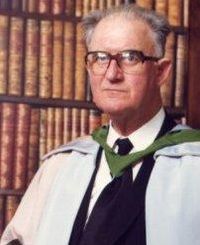Annotation:Mangister Voe: Difference between revisions
No edit summary |
m (Text replacement - "garamond, serif" to "sans-serif") |
||
| Line 1: | Line 1: | ||
=='''Back to [[{{BASEPAGENAME}}]]'''== | =='''Back to [[{{BASEPAGENAME}}]]'''== | ||
---- | ---- | ||
<p><font face=" | <p><font face="sans-serif" size="4"> | ||
'''MANGISTER VOE.''' AKA - "Mangaster Voe." Shetland, March (2/4 time). A Major. Standard tuning (fiddle). AABB'. Composed by the late Shetland fiddler, composer, collector and teacher Tom Anderson [http://www.shetland-music.com/prominent_artists/artists_of_the_past/dr_tom_anderson_%281910-1991%29/] (1910-1991). A ''voe'' in Shetland is the derived from the Norse name for a sea inlet, and Mangister Voe is located on the west side of the north Shetland Mainland, not far from where Anderson was born. As a march it is sometimes used as a vehicle for the ceilidh dance called Gay Gordons. | '''MANGISTER VOE.''' AKA - "Mangaster Voe." Shetland, March (2/4 time). A Major. Standard tuning (fiddle). AABB'. Composed by the late Shetland fiddler, composer, collector and teacher Tom Anderson [http://www.shetland-music.com/prominent_artists/artists_of_the_past/dr_tom_anderson_%281910-1991%29/] (1910-1991). A ''voe'' in Shetland is the derived from the Norse name for a sea inlet, and Mangister Voe is located on the west side of the north Shetland Mainland, not far from where Anderson was born. As a march it is sometimes used as a vehicle for the ceilidh dance called Gay Gordons. | ||
[[File:anderson.jpg|200px|thumb|left|Tom Anderson]] | [[File:anderson.jpg|200px|thumb|left|Tom Anderson]] | ||
| Line 7: | Line 7: | ||
<br> | <br> | ||
</font></p> | </font></p> | ||
<p><font face=" | <p><font face="sans-serif" size="4"> | ||
''Source for notated version'': | ''Source for notated version'': | ||
<br> | <br> | ||
<br> | <br> | ||
</font></p> | </font></p> | ||
<p><font face=" | <p><font face="sans-serif" size="4"> | ||
''Printed sources'': Hunter ('''Fiddle Music of Scotland'''), 1988; No. 350. | ''Printed sources'': Hunter ('''Fiddle Music of Scotland'''), 1988; No. 350. | ||
<br> | <br> | ||
<br> | <br> | ||
</font></p> | </font></p> | ||
<p><font face=" | <p><font face="sans-serif" size="4"> | ||
''Recorded sources'': <font color=teal></font> | ''Recorded sources'': <font color=teal></font> | ||
<br> | <br> | ||
<br> | <br> | ||
</font></p> | </font></p> | ||
<p><font face=" | <p><font face="sans-serif" size="4"> | ||
See also listing at:<br> | See also listing at:<br> | ||
Alan Snyder's Cape Breton Fiddle Recordings Index [http://www.cbfiddle.com/rx/tune/t4452.html]<br> | Alan Snyder's Cape Breton Fiddle Recordings Index [http://www.cbfiddle.com/rx/tune/t4452.html]<br> | ||
Revision as of 14:19, 6 May 2019
Back to Mangister Voe
MANGISTER VOE. AKA - "Mangaster Voe." Shetland, March (2/4 time). A Major. Standard tuning (fiddle). AABB'. Composed by the late Shetland fiddler, composer, collector and teacher Tom Anderson [1] (1910-1991). A voe in Shetland is the derived from the Norse name for a sea inlet, and Mangister Voe is located on the west side of the north Shetland Mainland, not far from where Anderson was born. As a march it is sometimes used as a vehicle for the ceilidh dance called Gay Gordons.

Source for notated version:
Printed sources: Hunter (Fiddle Music of Scotland), 1988; No. 350.
Recorded sources:
See also listing at:
Alan Snyder's Cape Breton Fiddle Recordings Index [2]
Hear the march played by Robert Bairnson at Tobar an Dualchais [3] [4] (followed by "Headlands (The)").
